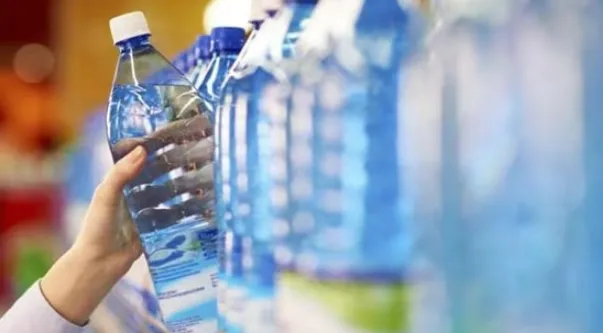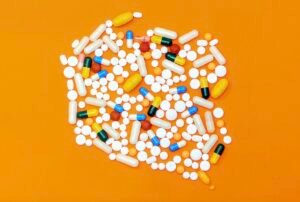**Wellhealthorganic.Com Know Why Not to Reuse Plastic Water Bottles Know Its Reason in Hindi:** प्लास्टिक की पानी की बोतलों का पुन: उपयोग स्वास्थ्य के लिए हानिकारक हो सकता है। इससे हानिकारक रसायन और बैक्टीरिया फैल सकते हैं। Plastic water bottles are convenient, but reusing them poses significant health risks. Harmful chemicals like BPA can leach into the water, leading to potential health issues.
Bacteria can also accumulate in these bottles, increasing the risk of infections. Regularly cleaning bottles isn’t enough to eliminate all contaminants. For a healthier lifestyle, opt for reusable bottles made from safer materials like stainless steel or glass. These options are better for your health and more environmentally friendly.
Understanding the risks of reusing plastic water bottles can help you make informed decisions and lead healthier lives.
Contents
- 1 Plastic Bottles: A Convenience With Hidden Costs
- 2 Chemical Leaching: The Invisible Threat
- 3 Microplastics: A Growing Concern
- 4 The Environmental Toll Of Single-use Plastics
- 5 Socioeconomic Implications
- 6 Alternatives To Plastic Bottles
- 7 Making A Personal Impact
- 8 The Way Forward: Policy And Innovation
- 9 Conclusion
Plastic Bottles: A Convenience With Hidden Costs

Plastic water bottles are everywhere. They are easy to use and carry. But do you know their hidden costs? These costs affect our health and the environment. Let’s explore why reusing plastic bottles is harmful.
The Ubiquity Of Plastic In Daily Life
Plastic is in our daily lives. We see it in packaging, toys, and gadgets. It is cheap and durable, which makes it popular. Yet, plastic also has problems. It breaks down quickly, slowly quickly and slowly, leading to pollution.
Brief History Of Plastic Bottles
Plastic bottles were first made in the 1940s and became popular in the 1970s. People liked them because they were light and strong. The use of plastic bottles grew fast. Today, we use billions of them every year.
Why Not To Reuse Plastic Water Bottles
Reusing plastic bottles can be harmful. Here are some reasons:
- Health Risks: Reused bottles can grow bacteria.
- Leaching Chemicals: Plastic can release harmful chemicals.
- Environmental Impact: Plastic waste harms nature.
| Reason | Impact |
| Health Risks | Can cause infections and diseases |
| Leaching Chemicals | This may lead to serious health issues |
| Environmental Impact | Pollutes land and water |
Chemical Leaching: The Invisible Threat
Reusing plastic water bottles might seem harmless, but it’s not. Chemical leaching is an invisible threat that can affect your health. Let’s dive into why reusing plastic bottles is risky.
How Plastics Interact With Contents
Plastics can interact with the liquids stored in them. Temperature changes and wear and tear can cause chemicals from the plastic to leach into the water, a process called leaching.
| Factor | Effect on Plastic |
| Heat | Increases chemical leaching |
| Scratches | More surface area for leaching |
| Old Age | Plastic breaks down, releasing chemicals |
Health Risks Associated With BPA and Other Chemicals
Bisphenol A (BPA) and other chemicals in plastics pose health risks. BPA can mimic hormones and disrupt your body’s normal functions. Even low levels of BPA exposure can be harmful.
- Hormone imbalances
- Increased cancer risk
- Reproductive issues
Other chemicals, like phthalates, can also leach from plastic bottles, causing similar health issues. It’s best to avoid reusing plastic bottles and choose safer options.
Microplastics: A Growing Concern
Microplastics are tiny plastic particles less than 5mm in size. They come from larger plastic pieces breaking down. Reusing plastic water bottles can release these microplastics, which pose risks to health and the environment. Let’s explore why microplastics are a growing concern.
The Journey Of Microplastics Into Our System
Reusing plastic bottles can break them down over time. This process releases microplastics into the water. When you drink from these bottles, microplastics enter your body. They can also come from other sources:
- Clothing fibres
- Cosmetic products
- Industrial processes
Once inside, they can travel through the digestive system. They may even reach the bloodstream. This is alarming because they are hard to remove.
Impact On Human Health And Environment
Microplastics can harm human health in various ways:
- They can cause inflammation.
- They may disrupt hormones.
- They could lead to cancer.
The environment also suffers from microplastics. They pollute oceans, rivers, and soil. Marine life can ingest these particles, causing harm. This pollution affects the entire food chain.
Here are some fundamental impacts on the environment:
| Impact | Description |
| Water Pollution | Microplastics contaminate water bodies. |
| Harm to Marine Life | Animals ingest plastics, affecting their health. |
| Soil Degradation | Microplastics reduce soil quality. |
In short, microplastics from reused plastic bottles are a serious issue. They affect our health and the environment.
The Environmental Toll Of Single-use Plastics

Single-use plastics, like plastic water bottles, greatly impact our environment and harm our planet in many ways. Understanding these effects helps us make better choices.
Decomposition Rates And Pollution
Plastic water bottles take hundreds of years to decompose. This means they stay in the environment for a long time. During this time, they break into small pieces called microplastics.
Microplastics spread everywhere, polluting our soil and water. They are hard to clean up and harmful to plants and animals. Plastic’s long decomposition rate makes it a major pollutant.
| Material | Decomposition Time |
| Plastic Bottle | 450 years |
| Glass Bottle | 1 million years |
| Paper | 2-6 weeks |
Effects On Marine Life And Ecosystems
Plastic bottles often end up in oceans, creating big problems for marine life. Many sea animals mistake plastics for food, and eating plastic can harm or even kill them.
Plastic waste destroys habitats, making it hard for animals to survive. Coral reefs and other ecosystems suffer because of plastic pollution. Not just animals; humans are also affected. Polluted water can harm our health, too.
- Fish ingest plastic particles.
- Birds get entangled in plastic waste.
- Coral reefs suffer from plastic debris.
Socioeconomic Implications
Reusing plastic water bottles might seem harmless, but it has vast socioeconomic impacts. This practice affects not only health but also the economy and environment. Let’s explore these implications from different perspectives.
The Cost Of Convenience
Plastic water bottles are cheap, convenient, and easily available everywhere. However, this convenience comes at a high cost. Producing plastic bottles requires a lot of resources, including oil, water, and energy, which are limited and expensive.
Furthermore, the environmental damage caused by discarded plastic affects local economies. Tourist spots suffer due to plastic waste, hurting local businesses. Cleanup efforts also strain public funds. Thus, the cost of convenience impacts us all.
Recycling Challenges And Realities
Recycling plastic bottles is more complex than it seems. Most plastic bottles are not recycled, and instead end up in landfills or oceans. Recycling processes are costly and inefficient, and only a small percentage of plastic bottles are actually recycled.
Here is a table showing the recycling rates of plastic bottles: CountryRecycling RateUSA30%India60%Germany90%
The low recycling rate means more plastic waste. This leads to higher environmental cleanup costs. Developing nations often need more efficient recycling systems. This results in more waste and economic strain.
To make matters worse, the quality of recycled plastic could be improved. This limits its reuse, causing more demand for new plastic. This cycle makes it hard to reduce overall plastic consumption.
Alternatives To Plastic Bottles
Plastic water bottles are harmful to the environment. They can also impact your health. Wellhealthorganic.com suggests exploring sustainable alternatives. This section will guide you through eco-friendly options.
Sustainable Materials For Daily Use
Switching to sustainable materials is essential. Here are some options:
| Material | Benefits |
| Stainless Steel | It is durable, non-toxic, and keeps water cold or hot for hours. |
| Glass | It is non-reactive, keeps water pure, and is easy to clean. |
| Bamboo | Eco-friendly, lightweight, and biodegradable. |
Innovations In Biodegradable Packaging
New technologies are emerging in biodegradable packaging. These innovations reduce plastic waste. Here are some exciting developments:
- Plant-Based Bottles: Made from natural materials like corn starch.
- Algae-Based Packaging: Uses algae to create biodegradable bottles.
- Edible Water Pods: Small pods you can eat after drinking the water.
Switching to these alternatives can make a big difference. Wellhealthorganic.com supports eco-friendly choices for a healthier planet.
Making A Personal Impact
Reusing plastic water bottles can harm your health and the environment. Making small changes can have a significant impact. Learn how your actions can lead to a better future.
Adopting A Zero-waste Lifestyle
Adopting a zero-waste lifestyle means reducing waste in daily life. Use reusable water bottles made of glass or stainless steel. Avoid single-use plastics as much as possible.
Start with these simple steps:
- Carry a reusable water bottle.
- Use cloth bags for shopping.
- Buy products with minimal packaging.
These steps can reduce plastic waste significantly.
Community Initiatives And Global Movements
Communities and global movements play a crucial role in reducing plastic waste. Join local cleanup events and support eco-friendly initiatives.
Here are some popular movements:
- Plastic Free July: A campaign to reduce plastic use in July.
- Zero Waste Week: An annual event promoting waste reduction.
- Earth Day: A global event to support environmental protection.
Participating in these movements can amplify your impact.
The Way Forward: Policy And Innovation
The fight against plastic pollution needs strong policies and intelligent innovations. Governments and companies play a crucial role. New laws and technologies can help reduce plastic waste. This will make our planet healthier. Let’s explore the policies and innovations leading the change.
Government Regulations On Plastic Use
Many countries have created laws to limit plastic use. These laws help reduce plastic waste in our environment. Here are some examples:
- Plastic Bag Bans: Some places have banned plastic bags.
- Single-Use Plastics: Many areas have banned single-use plastics like straws and cutlery.
- Recycling Laws: Some governments require recycling of plastic bottles.
| Country | Regulation |
| India | Ban on single-use plastics |
| USA | Plastic bag bans in various states |
| Germany | Strict recycling laws |
Technological Advances In Recycling
New technologies make recycling more effective. These innovations help turn waste into valuable products, reducing the need for new plastic.
- Advanced Sorting: Machines can now sort plastics by type.
- Chemical Recycling: Breaks down plastic into its basic chemicals.
- Biodegradable Plastics: New plastics that break down naturally.
These technologies make recycling easier. They also help keep our planet clean.
Conclusion
Reusing plastic water bottles poses health risks and environmental harm. Opt for safer, sustainable alternatives. Stay informed and protect your well-being. Visit Wellhealthorganic. Com to learn more in Hindi and make better choices. Your small steps can lead to a healthier life and a cleaner planet.










